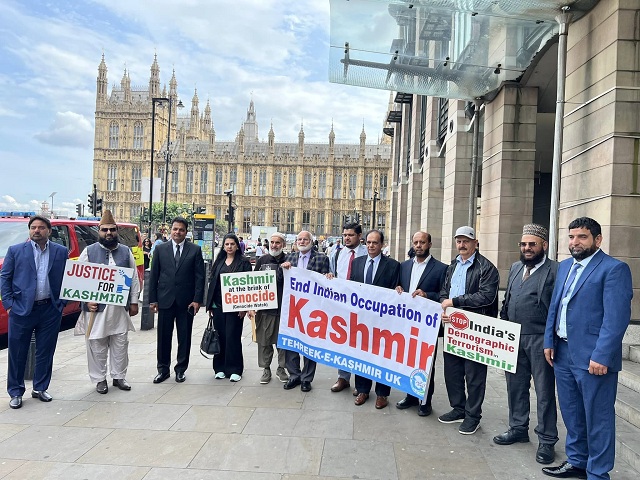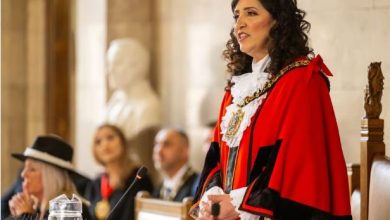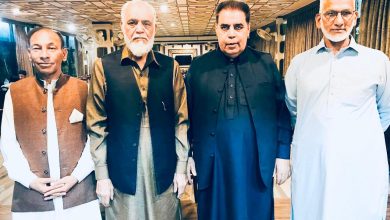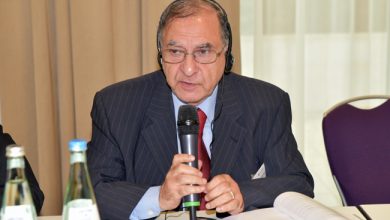Kashmir conference at British Parliament demands tripartite talks to resolve Kashmir dispute
 London: The Kashmir Conference held at the British Parliament under the auspices of Tehreek-e-Kashmir UK raised the demand for tripartite talks to resolve the Kashmir dispute.
London: The Kashmir Conference held at the British Parliament under the auspices of Tehreek-e-Kashmir UK raised the demand for tripartite talks to resolve the Kashmir dispute.
According to Kashmir Media Service, a large number of British MPs, human rights organizations, student union representatives, and Kashmiri leaders participated in the event. The conference was presided over by Raja Fahim Kayani, President of Tehreek-e-Kashmir UK.
Speakers condemned India’s actions on August 5, 2019, as a violation of international laws and UN resolutions. They urged the British Labour government to play a role in resolving the Kashmir issue, as per the resolution passed in the 1995 Labour Party annual conference.
The conference demanded that the British government convene an international conference to prepare a roadmap for the resolution of the Kashmir issue through tripartite talks between India, Pakistan, and Kashmiri representatives. This would ensure progress towards a UN-supervised plebiscite.
British MPs, including Andrew Gwynne, Dave Ibrahim, Imran Hussain, Ian Byrne, Sarah Owen, Richard Hopkins, Paula Hamilton, Iqbal Mohammad, Clive Butler, and Afzal Khan, attended the conference. They emphasized that resolving the Kashmir issue is crucial for peace in South Asia, warning of the risk of nuclear war in the region.
Kashmiri leader Mazamil Yaqoob Thakur said that India’s military might has failed to suppress the Kashmiri people’s demand for freedom, despite using all tactics. Other Kashmiri leaders, including Muhammad Ghalib, Khawaja Muhammad Suleman, Rehana Ali, Sadaf Abbas Chema, Naila Azmat, Chaudhry Iqbal, Chaudhry Sharif, and Chaudhry Ramzan Sheikh Qazi, demanded an end to India’s attempts to change the demographic ratio in Kashmir, which they said was a violation of the Geneva Convention.
The conference concluded with a resolution presented by Raja Fahim Kayani, demanding the release of political prisoners, lifting media restrictions, reversing India’s illegal actions, ending black laws, stopping demographic changes, and urging the British government to play a role in resolving the Kashmir issue.








